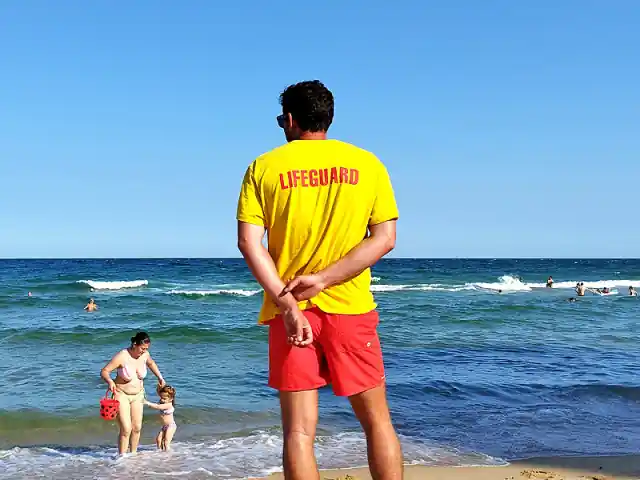
Kraimorie, Bulgaria – Despite relatively high wages, Bulgaria is grappling with an acute shortage of lifeguards for the summer season.
The situation has been exacerbated by stringent state requirements introduced by a new ordinance two months ago, according to Nikolay Dimitrov, a beach concessionaire in Kraimorie.
In an interview with the national radio, Dimitrov explained that the newly imposed regulations have created significant challenges for beach operators.
Following extensive discussions between concessionaires and the Ministry of Tourism, it was decided that the enforcement of these regulations would be postponed until the next summer season.
Dimitrov highlighted that the requirements, particularly those related to medical stations and additional personnel, were deemed impractical.
“No other country in the world mandates medical stations as extensive as those in Bulgaria,” Dimitrov remarked. For larger beaches, several ambulances with medical teams are already in place, but the new regulations would require even more medical staff.
Dimitrov emphasized that Bulgarian lifeguards are highly trained and well-equipped, with a higher number of lifeguards per beach length compared to other countries.
He pointed out that his 700-meter beach requires 11 lifeguards, while a 1-kilometer beach in Spain operates with only six.
Dimitrov advocated for regulatory changes reminiscent of the pre-1989 era, where trained professionals could work as lifeguards seasonally without losing their primary jobs.
He cited examples such as an aluminum workshop employee who is also a trained lifeguard, suggesting they should be able to work as lifeguards during the summer without jeopardizing their primary employment.
The regulation concerning lifeguards’ working hours has also been deferred. Dimitrov argued for more flexibility, noting that many beachgoers arrive after 5 p.m., while the current lifeguard hours are from 8 a.m. to 6 p.m.
He pointed out that the majority of drownings occur after 6 p.m. and early in the morning when lifeguards are not on duty.
The seasonal nature of lifeguarding jobs and increased requirements are the primary factors contributing to the shortage, despite the relatively high wages offered.
Dimitrov mentioned that he offers lifeguards BGN 1,900 (EUR 970) along with insurance and days off.
However, he acknowledged that these salaries are still not as competitive as those in neighboring countries. For instance, in Greece, 80% of beaches lack lifeguards, while in Bulgaria, only 20-30% are unguarded, which leads to comparatively lower pay.
In response to financial challenges, Dimitrov assured that the prices for beach amenities such as umbrellas and deckchairs would not see significant increases.
On some beaches, prices have reached their maximum allowed limit, such as 10 BGN (5 EUR) in Sunny Beach, which has remained stable for years. Dimitrov has slightly raised prices by one lev to cover the costs of salaries, cleaning, and equipment.
He also urged beachgoers to respect the signs and adhere to lifeguards’ recommendations to ensure their safety during the summer season.
As Bulgaria navigates these regulatory challenges, the focus remains on maintaining safety and ensuring that beaches are adequately staffed to protect visitors.
This article was created using automation technology and was thoroughly edited and fact-checked by one of our editorial staff members
